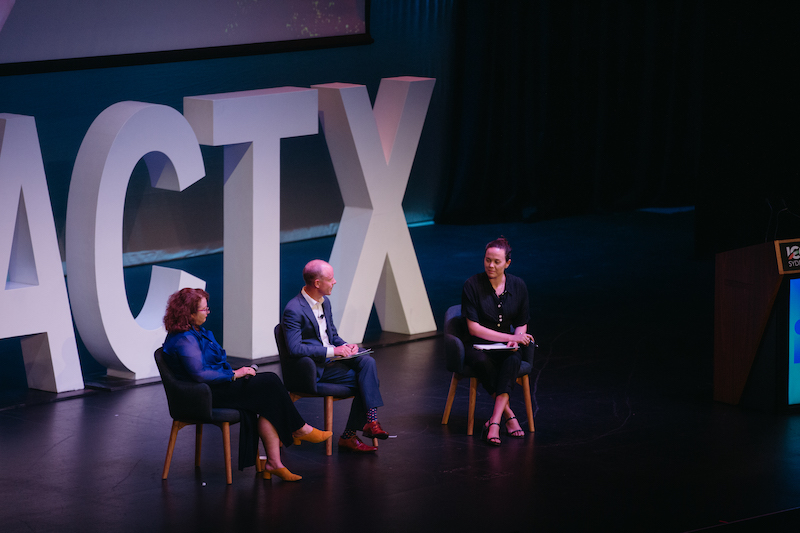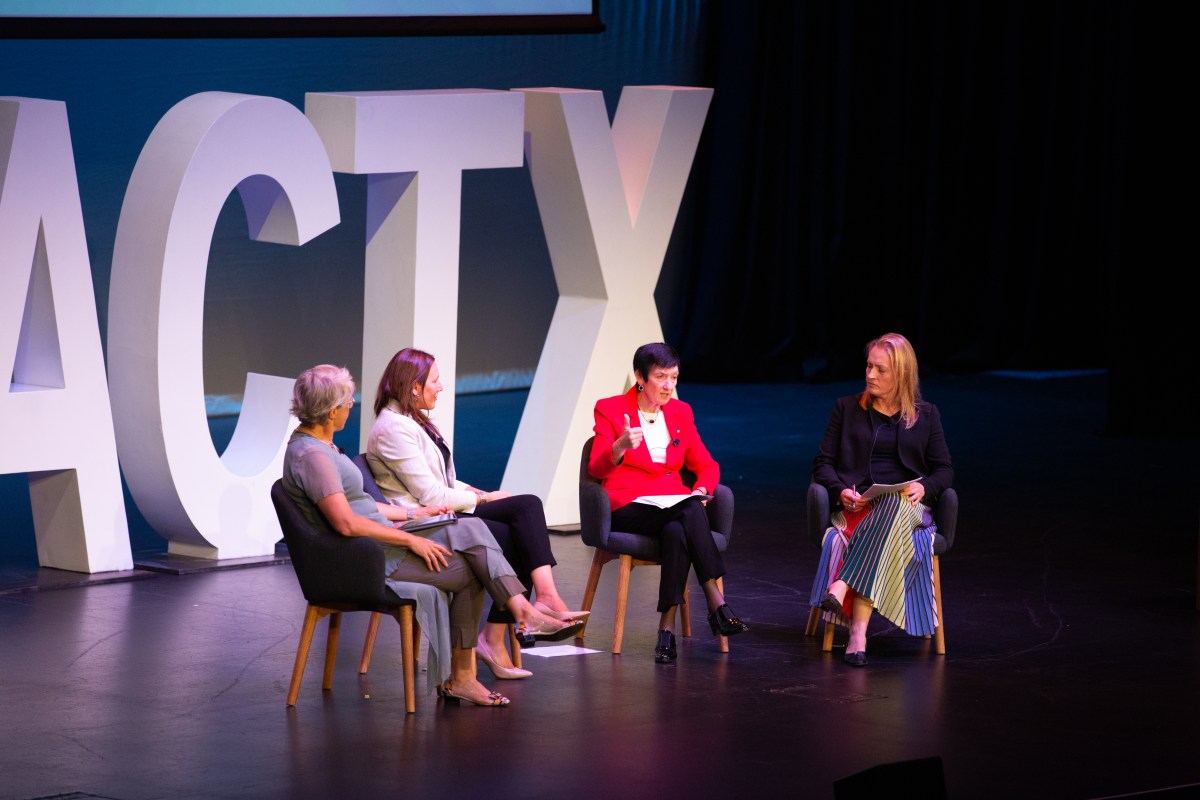The city was busy. I rode the light-rail up George street before walking through Town Hall and down to Cockle Bay Wharf. The buzz of people suggesting the death of inner-city work is greatly exaggerated.
I was heading for the ICC (International Convention Centre) for the Impact X Summit, an Australian climate change conference and a welcome chance to spend a day with peers, live and in-person.
The program included a mix of businesses, from the large industry leaders, to smaller startups hustling to disrupt them, but there were also advocates, activists and climate-campaigners.
The common thread was as an urgent focus on finding solutions to climate change, using business as the lever for change.
The event could equally have been called Climate X.
Throughout the day I was energised by story after story of companies large and small making progress on their sustainability journey, but it was climate change veteran and author Paul Hawken (Drawdown, Regeneration) that was the standout.

Climate Change Is Now Core Business
It was only a few years ago that climate change conferences were reserved for scientists and not-for-profits. It was a niche pursuit that likely saw big-business as the enemy, not an ally.
Many things have changed, but most profoundly, we’re seeing major physical impacts that climate change is having on our people and our communities. This is impacting companies, and they’re taking notice.
The Impact X Summit was an opportunity for companies to show progress being made, and discuss challenges on the journey.
Climate change is no longer a nice-to-have, it’s no longer reserved for B-Corps and it has well and truly stepped beyond being a CSR issue.
Climate is now part of BAU.
It’s a risk to be managed, and it’s a problem for entrepreneurs to solve and create value.
As Jennifer Westacott, CEO of Business Council of Australia, said:
“This is about Australia at the frontier, with people better paid and better treated.
The biggest mindset shift is realising that this is not decarbonisation at the margins, this is a transformation of our entire economy.”
Nicky Sparshot, CEO of Unilever Australia, said:
“We need to reimagine value-creation, it’s not a question of being purpose-led or profitable, you need to be good enough to do both.”
Financing the Transformation
Investors have an important role to play. Their capital allocation decisions are a powerful driver of corporate progress.
Companies must always focus on the customer, but investors are an equally influential stakeholder as they do their analysis before offering capital or buying into a debt round.
Simon O’Connor (CEO of RIAA) said:
“The rubber is hitting the road. It’s become real for Australia’s investors. We have the Paris Agreement, Australia has increased its decarbonisation targets, the TCFD have become global rules, and combined it’s moving money.
We’re sailing with the tide, not against it. And that’s an exciting place to be.”
Alison Rowe (Managing Director, The Nature Conservancy, Australia):
“We get a lot of questions about TNFD, but it’s not a silver bullet. Essentially, companies want to see nature on the balance sheet, rather than it being an externality.
It’s not easy, nature is more complex than carbon, where you simply apply offsets. We need to identify the biodiversity that is most threatened, and go from there.”
Christina Tonkin (Managing Director of Corporate Finance, ANZ Institutional):
“I want to assure people that if the projects are high quality, there’s a lot of capital available. We have so many different types of customers, and they’re all converging around decarbonisation and biodiversity protection, and of course they’re linked.”
“It’s a (decarbonisation) target, not a credit card limit.”
“In Australia the finance and business communities are coming together. But the transition for many carbon intensive industries will be challenging.”

Change the Language of Climate Change
Paul Hawken beamed in from a hotel somewhere, he was hoarse from a long day of presentations, but there was no shortage of energy.
He’s maintained the rage for decades, writing books and diving deep to bring readers the research and opportunities that show there are solutions, there is hope.
Most profound for me, and something that has been on my mind for a long time, is shifting the language we use when talking about climate change.
Climate change is not something to battle against! In the end, it’s something we all contribute to, and it impacts us all.
“We talk about ‘fighting’ climate change, but that’s dangerous language, that’s language of war.
“Nature is not the ‘other’, it’s right here, it’s all of us. We should use language that brings it close to home.”
“You can’t help the climate, if it’s an ‘it’.”
“It’s not a technical problem, it’s a human problem.”
Fossil fuel industries have long been the bogey-man of climate change impacts. It’s an inherently extractive industry. But Paul suggests the most extractive company today is not a mining company, but may in fact be Google.
“They extract every inch of data they can.Our current economy is built on extraction. But that’s degeneration, it’s the opposite of regeneration.”
He continued his emphasis on language. Reminding us that we are nature, it’s not an abstract thing.
“Nature-based-solutions, I don’t like the term, it frames nature as the ‘other’. All solutions to climate change are nature-based at their core. We need to create a sense of connection to things around us, rather than a divide.”
“Even the climate change community, and its jargon, can be alienating, some feel they’re not welcome and can’t engage.”
“We need to speak in a language that speaks to people in their lives today.”

